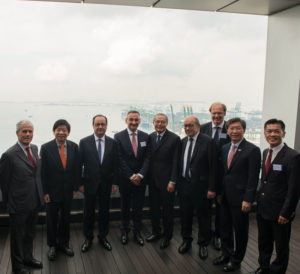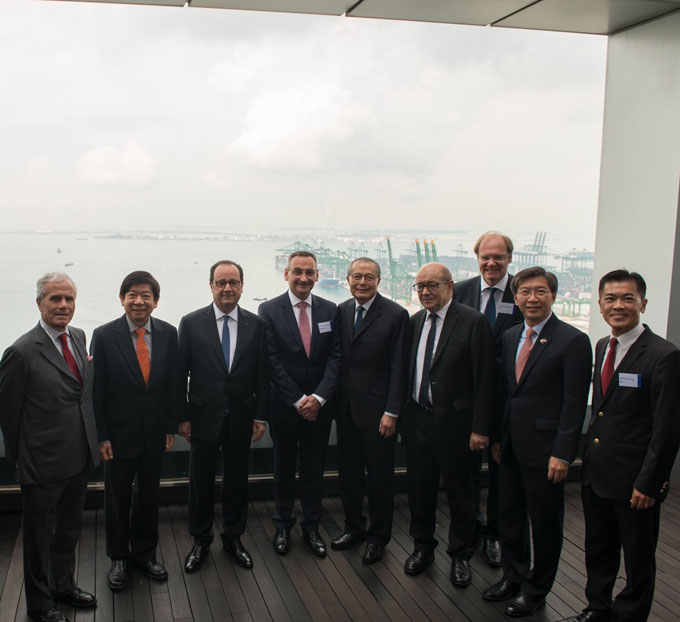 The CMA CGM group and port operator PSA kicked off March 27 the second phase of their container terminal joint venture in Singapore.
The CMA CGM group and port operator PSA kicked off March 27 the second phase of their container terminal joint venture in Singapore.
The CMA CGM-PSA Lion Terminal (CPLT) started operations in July 2016 with two mega container berths at PSA Singapore’s Pasir Panjang Terminal 5, having an initial annual capacity of 2 million TEUs (twenty-foot equivalent units).
With the addition of two more berths under Phase 2 of its development, CPLT is now equipped with a total operating capacity of 4 million TEUs.
“CPLT has achieved high service levels with an average gross berth productivity of more than 160 moves per hour for the mega vessels since the beginning of 2017,” CMA CGM said in an official statement.
Officiating the launch were French President François Hollande and Khaw Boon Wan, coordinating minister for infrastructure and minister for transport of Singapore.
“Leveraging the industry-leading port infrastructure and technologies including the state-of-the-art yard automation at PSA’s newest PPT expansion, CPLT is well-primed to serve the mega vessels of CMA CGM and the affiliate shipping lines of the Group. This also enhances Singapore’s standing as a premier International Maritime Centre,” CMA CGM said.
Jean-Yves Duval, CMA CGM’s senior vice president for Asia, said this was another milestone for the shipping company as part of the group’s continuing efforts to make Singapore its main hub in the region.
Ong Kim Pong, regional CEO of Southeast Asia, PSA International, noted that the joint venture will support trade between the ever-growing economies of the Asia-Pacific region and the world.
CMA CGM is a worldwide shipping group with 453 vessels calling more than 420 ports on all five continents. In 2016, it carried 15.6 million TEUs of cargo.
PSA Singapore, a fully owned subsidiary of PSA International, operates in Singapore the world’s largest container transshipment hub, linking shippers to a network of major shipping lines with connections to 600 ports globally.





